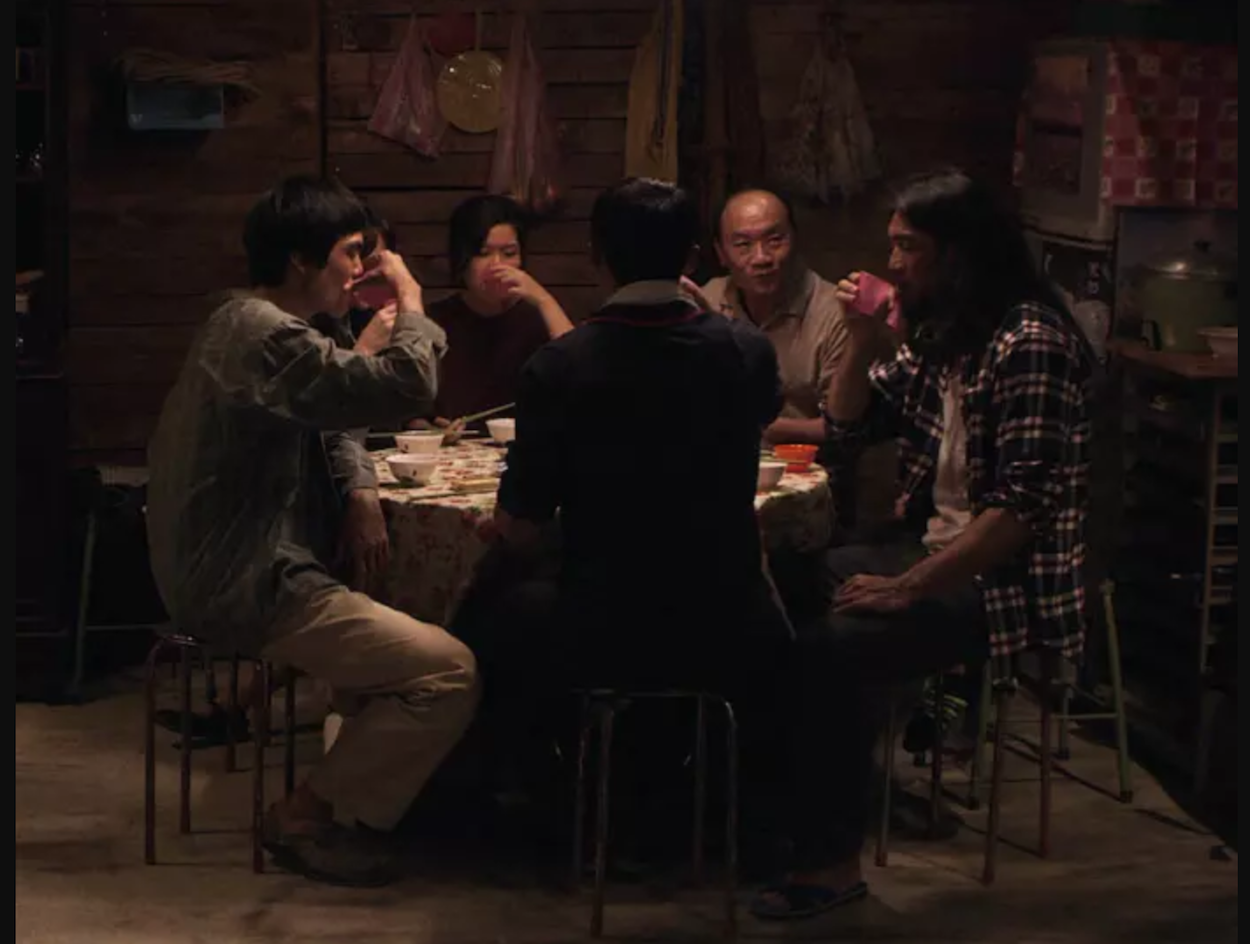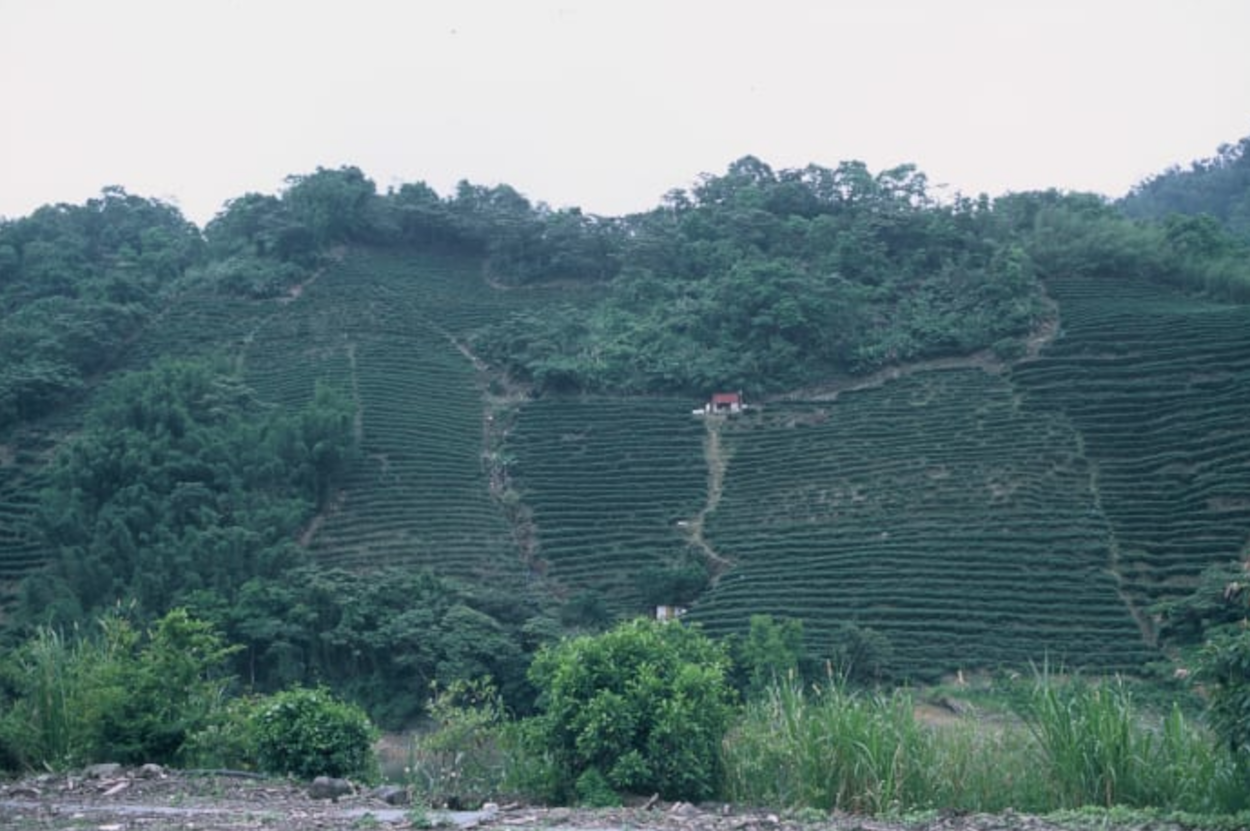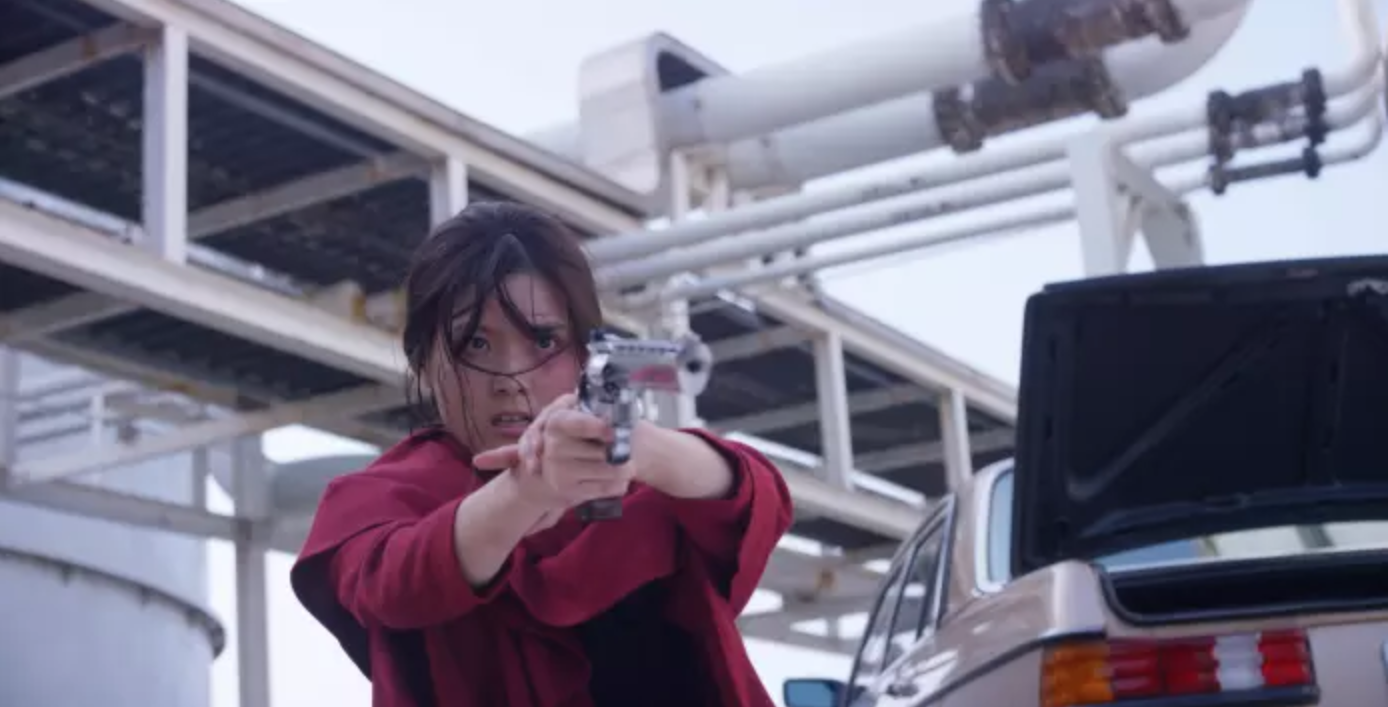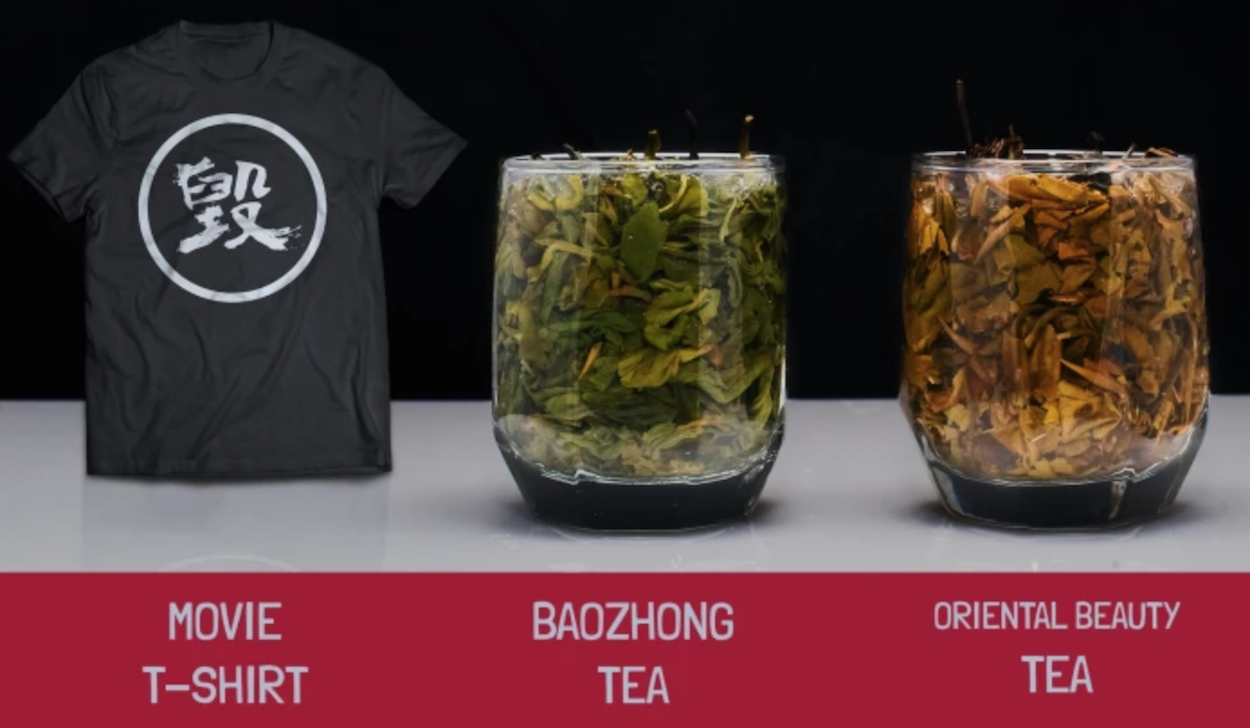by Brian Hioe
語言:
English
Photo credit: At Road’s End
New Bloom editor Brian Hioe spoke with Gideon Welles and Pratik Suketu, the producer and director of At Road’s End, on November 29th, 2017. At Road’s End is an independent film set in Taiwan currently running a crowdfunding campaign on IndieGogo, the film touching on issues such as the RCA incident and the history of developmentalism in Taiwan.
Brian Hioe: The first thing I wanted to ask if, how did you two come to Taiwan and how did the project start?
Gideon Welles: I was born here, moved to Hong Kong as a kid, grew up there, and went to USC to study film in college. As I was graduating, I didn’t know what I wanted to do next in life, but I knew that improving my Chinese was something I wanted to do to obtain a skill set which could open doors, so I came back here on scholarship to study Chinese at National Taiwan University for a year.
After that, I worked on film in China for a year and came back to Taiwan. That’s when I met Pratik and we hit it off because we had that California connection.
Pratik Suketu: I came in the beginning of 2015, I had been freelancing for this company in the Unites States, and they were basically shutting down their US operations, but they asked me to come to Taiwan for a bit to take on new projects, because that’s where their headquarters was. I said, “Yeah! Let me check it out, see what it’s about.” Originally it was a three month gig, but pretty much as soon as I got here, I got promoted, and ended up staying here full time.
 Director Pratik Suketu (left) and producer Gideon Welles (right). Photo credit: At Road’s End
Director Pratik Suketu (left) and producer Gideon Welles (right). Photo credit: At Road’s End
I was working at that company as a creative director when I met Gideon and, yeah, we hit it off because of the California connection, as well as that we both studied film. It was at this terrible house party. [Laughs] We ended up meeting through mutual friends.
I was getting really fed up with corporate work in general and there was an incident at work which sparked this short story. That was around the time that Gideon had started going to Pinglin, so I shared the short story with him, and he was like, “Oh, you should come with me to Pinglin next time I go!” Things snowballed from there.
GW: Yeah. It was really good timing for us personally. I think we wanted to embark on a passion project. I had started going to Pinglin in October 2015. I was introduced to the farmers through a mutual friend. At that time, I was teaching English. And on the weekends, I wanted to get out and do stuff. I wanted to learn more about tea farming and so through my friend’s connection, I went up to Pinglin.
They were like, “Oh! Not many white guys come here. Not many adogas come here.” They were welcoming and I felt very at home and at ease there, oddly enough.
It’s a very small village, quaint, and there’s only one road up and down, so it’s quite protected from the bustle of the main street Pinglin town. I took Pratik up there and he was definitely the first brown person they had seen.
PS: Yeah. [Laughs] They mentioned that multiple times. And then we started just going up all the time, as we began talking more and more, this short story becoming more and more of a treatment.
GW: We went on a trip during Chinese New Year’s around the island. We already loved Taiwan’s beautiful nature but you don’t actually get an appreciation for that until you’ve gone around the whole island and seen a lot of it firsthand. We had a couple of other friends come into Taiwan for that trip.
One of them was our writer, Keryl, who I went to school with, so she studied screenwriting. She really helped us flesh out the short story into a proper script, and to develop the characters. Especially Hsiao-Juan, the hero, she’s a woman, so we needed that female perspective.
 Photo credit: At Road’s End
Photo credit: At Road’s End
PS: The three of us had similar goals with the script from the very beginning. A lot was happening just as the casting for Ghost in the Shell was announced, so we were pretty angry about that.
One of the big things coming out of Hollywood was the view that, “Oh, you can’t sell a film globally with an unknown Asian lead.” We were like, “Well, why don’t we try to?”
Most female heroines are also overly sexualized. And we wanted to create this badass character that didn’t rely on that. We had a lot of similar goals right off the bat and the whole process was very organic.
BH: Pratik, I recall that you mentioned in the video, one of your ideas for the film was transplanting Indian adaptations of westerns to a Taiwanese setting. Could you kind of elaborate on that?
PS: I grew up watching a lot of Sergio Leone’s spaghetti westerns and at the same time, the Indian version of that. It wasn’t necessarily taking the Indian spaghetti western and bringing that to Taiwan, but more that concept of taking this genre and changing up the region, adding in different cultural influences, and seeing how that affects the story.
But spaghetti westerns in general are usually about society in transition. The original ones were about the end of that western era, when industrialization started in the United States. And so because we wanted to set our film in the 1980s in Taiwan, that fit in pretty naturally with the Taiwan Miracle as a backdrop.
BH: So you decided to set the film in Pinglin because of your connections to Pinglin and also because it was an area which was more remote from the city?
GW: Yeah, it’s only an hour from Taipei. But it’s completely different. The air is much fresher and its a completely different change of lifestyle. We had that access from the villagers, which was instrumental. The farmers gave us a house that we made into a film set. We saved a lot of money and with the resources that we had, we could create something unique.
PS: And one of the things we both talked about really loving while living in Taipei is just the fact that so much nature is just outside the city. You don’t have to go that far to completely lose yourself in nature.
That’s one of the reasons why I wanted to stay in Taiwan. Even if I had a bad week at work, as soon as the weekend hit, I could just get out and spend the entire weekend hiking and exploring. That’s something that’s very unique to Taipei which isn’t really captured on film as much.
BH: What other influences would you had in terms of filmmaking style?
 Photo credit: At Road’s End
Photo credit: At Road’s End
GW: We watched a lot of movies before and during the writing process. We both like that kind of postmodern Tarantino style.
PS: We also marathoned the entire Dollars Trilogy while we were writing. In terms of Taiwan’s films, we watched Hou Hsiao-Hsien’s films as well.
GW: We also had a great deal of appreciation for Korean cinema as well. A willingness to explore the darker aspects of people and the bonds that tie them together. We often watch a lot of contemporary Taiwanese movies, but many of them are maybe too “nice”. A lot of that is maybe because of budget constraints, that you can only shoot a coming of age romance so many times.
BH: What are some other inspirations from Taiwan you would mention? Gideon, you mentioned the RCA incident to me in your e-mail, for example.
GW: At the same time we were writing the movie, Flint, Michigan was happening in the United States.
PS: That’s what encountered the first couple drafts. After our executive producer came on board, she read one of those first drafts and instantly drew that connections to RCA. So we started researching a lot more into that case.
GW: We went to Taoyuan to do more location scouting because we thought, if we’re going to integrate this into the storyline, we should try and see if we can shoot in Taoyuan too. We were very lucky that the local film commission helped us get this water treatment plant that looks like an industrial, oil refinery or something like that. Our final scene in the movie is set there, which was really cool.
Obviously, we don’t think that this film is going to speak for victims of RCA. It’s a fictional film, but I would hope that the audience can get a sense of what happens when corporate greed goes wrong, and that people should be held accountable for their actions.
It was great to see that they got that second ruling recently. It’s a small victory, but many of the people that were victims weren’t included in the original settlement, so it’s hard to say that it’s the end of the case.
The onus should be on be if people can leave films like ours and ask, “What can we all do to make sure this doesn’t happen in the future?”
 Photo credit: At Road’s End
Photo credit: At Road’s End
PS: Film is one of the best tools to change public opinion, which is why it’s disappointing when, around the world, most contemporary films are flat and skirt over issues that they do have the power to influence opinion on.
In the US, we saw in the late 1990s and early 2000s, that television got much more inclusive. It’s not there yet, there’s still a lot wrong with it, but it is getting more and more inclusive, and that’s had a huge impact on public opinion about so many different issues.
With film, the medium has that power. We can’t give answers, we can’t say that this is how things should be, but by telling these stories that do tackle tougher issues, we hope to start a conversation.
BH: What have responses been in Taiwan? Internationally?
GW: A lot of Asian-Americans and Taiwanese-Americans have been supportive. We’ve been talking with Taiwanese-American and Asian-American organizations, which have been very supportive. Everyone wants to see more Taiwan stuff out there. I think also that, to maybe to pivot to Taiwan, anyone is happy to see people doing something entrepreneurial and not the rat race, corporate thing.
We feel very blessed to have had the opportunity to do it this year. It’s obviously a lot harder to live on savings and to become a starving artist in the US, but between our resources here and our network, we were able to put together a lot of cool stuff. I think a lot of that is because our film resonates with them.
Maybe a lot of Taiwanese people are a bit bewildered that two foreigners would come to Taiwan—they regard me as a foreigner, too, although I’m half-Taiwanese and was born here—but I hope that with things such as the campaign, we can slowly get them to realize that we have this perspective of Taiwan, that it’s beautiful, has a great culture, and is something we really value. I think most Taiwanese people will value that too.
PS: This campaign is our first time facing the public for the movie. But even when we were in pre-production and trying to get staff and crew and everything, a lot of people were pretty excited about how different this project seems. Most of our crew came from a commercial background. Just seeing a film trying to do something different got them excited.
 Photo credit: At Road’s End
Photo credit: At Road’s End
GW: There were a couple of meetings when we walked in, hoping to find actors—someone gave us this outrageous quote for his services, thinking that we were some big Hollywood production. That just goes to speak that because Lucy and Silence came here, that’s become thought of as foreigners are loaded or something like that.
That view might not change anytime soon, but it’d be good to expand the overall pie of indie production. It’s not just good if we’re successful. We want to create opportunities for everyone here. That benefits us too, it’d be more people to work with.
PS: Within our own circle, our crew, our friends, everyone, we have a lot of friends that want to work in the indie film scene here. This year we’ve seen more people that have taken the initiative, writing their own scripts, within our own circle. We hope that continues. We can’t claim responsibility for this trend, but we’re really stoked that it’s happening.
BH: What have the challenges been in making the film? You mentioned that there are not a lot of these sorts of films and in general, indie productions face uphill challenges.
GW: Language was a big barrier. I had to wear a lot of different hats. But we had a pretty nice crew, that was quite understanding, and a lot of the crew was bilingual and a lot of the actors were bilingual. That helped Pratik a lot.
BH: Is there anything you’ve observed about the film industry here?
GW: We were locking down locations and I thought, “Okay, I need to get insurance.” I got the crew insurance, since at the very minimum we need that. I talked to the insurance agent and I asked her, “Do you guys also do location insurance? In case something happens? Or even equipment?” And she was like, “Location insurance. That’s very interesting. We don’t have that product, but we can make one for you if you want.”
It was pretty straightforward, I thought. There are some things which maybe just don’t exist in terms of infrastructure or framework here.
 Crowdfunding rewards for At Road’s End. Photo credit: At Road’s End
Crowdfunding rewards for At Road’s End. Photo credit: At Road’s End
PS: Even when we were casting, we found most of our cast through open casting calls. There’s a lot of agents here, but there are only two or three agencies, and they mostly focus on modeling.
GW: Everybody’s aunt is an agent here.
PS: With three or four actors on their roster. So it was a very different process from what we expected initially, but like everything in filmmaking, you just have to find a solution and figure things out.
GW: On-set, we shot a lot of the film in Pinglin. When you’re shooting outdoors, you’re supposed to shoot all the natures scenes outdoors in the beginning of the shoot, in case of weather. We didn’t. It was too hard scheduling.
So by the end of it, we were really rushing. There was rain. And we found out later that Pinglin is on a flight path, so a lot of times, after we had put food outside for the stray dogs and there’s a rooster in and out, we would hear the “Whoosh!” of a plane engine roaring.
PS: There were so many times on-set when we would get a perfect take. I would be excited, the cinematographer would be excited, the actors would be like, “We nailed it, right?” And we’d look over at the sound guy and he’d be shaking his head. [Laughs]
GW: It’s all a good lesson.
BH: What about marketing? Or trying to get the word out?
GW: A lot of Taiwanese people just don’t know what IndieGogo is. They’re also wary of credit card fraud. As a result, because our team’s network is more based in the US or international, many of our donations have been international. But Taiwan is #2.
PS: 30% of donations have come from Taiwan and the remaining 75% have been from around the world. But that’s a good thing, too, since that means that a lot of people around the world are interested in this film, that it’s set in Taiwan.
GW: People are just going to have to get to know us more in Taiwan. Because we’re going to be around. The US is probably more used to this narrative of two guys in their twenties trying to do something, going for broke.
But at the same time, right now, Netflix and other companies are really trying to see what opportunities there are in Asia. English language content isn’t the only form of content anymore. So time-wise, there are a lot of opportunities available. Once we hit the festival circuit, I’m really excited to have conversations with a lot more people, and see what’s next.
Pitch video for At Road’s End. Film credit: At Road’s End
BH: Lastly, then, what do you think are the next steps for your film?
PS: The immediate next step is getting through the campaign first.
GW: We finish on December 5th. And we’ll use these funds for music, visual effects, sound and mixing, and stuff like that. We hope to start applying to festivals after Chinese New Year. This time next year, we’re hopefully in festivals. Hopefully in Golden Horse, you never know.
With what we started with the crowdfunding, we want to build that audience, to cultivate that audience, and our content to be focused on people who have an appreciation for Taiwan but may not know as much about Taiwan, and can experience it through this movie or our future movies.
PS: That’s the great thing about a crowdfunding campaign. It doesn’t matter how much people are giving as much as how many people there are. All those people become really adamant fans of you and your work. We hope that this creates a foundation for us to build off of.
GW: For example, can we find a thousand people across the world? Not just people who gave money, but on Instagram or Facebook, but people who are really behind us. Nowadays if you have a big group of people behind you, you can achieve a lot. We’re excited. It’s promising.

